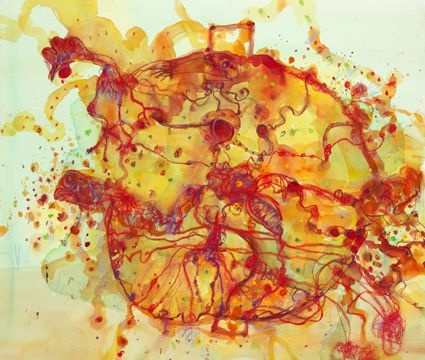
by: Steven John
“You didn’t tell me you had a boat,” Cal says.
Clemmie twists the combination padlock. The sign on the gate reads ‘Berth Holders Only’.
“I don’t. It’s my father’s.”
“Which one?”
A line of narrowboats stretch up and down the river bank, tethered to posts by frost-rimed ropes. The surrounding water exhales a mist that dances around the rushes and drifts among the hulls. Some of the moorings have squares of wooden decking for summer chairs. Varnished signs on short stakes are stabbed into the grass: ‘Lady Godiva’, ‘Cygnet’, ‘Little Lu-Lu’. There are no other people at the moorings, only a pair of sleeping swans, their necks tucked under folded wings.
“Over there. Blue hull. ‘Gay Greta’.”
“Gay Greta?”
“It’s bad luck to rename a boat. Like a boat should always be a ‘she’.”
“So ‘he’ names are bad luck?”
“Mostly.”
Clemmie points to the stern rope. “Let’s pull this in some so we don’t have to jump. The decks can be lethal.”
They step over the narrow gap of water. Clemmie makes her way to stern and unzips the tarpaulin hood that covers the wheelhouse. She tries to find the key for the cabin door. Cal perches on the cockpit chair and spins the spoked wheel to port and starboard.
“I could get used to this. Weekend cruises. Wine and sex in the captain’s cabin,” Cal says.
“Pretty much the same as our current wine/sex relationship then?” Clemmie opens the cabin door, “Except on the water.”
Cal stoops through the low-ceilinged galley into the saloon. The air is rife with the smell of mildewed fabric and river mud, the cold floods up through the deck floorboards as though they’d been holed. The fog and turgid water muffle their footsteps and voices. He lays down on one of the seats and wraps his arms over his chest to keep warm. Screwed into the dark wood bulkheads above his head are brass encased instruments; a barometer that reads ‘changeable’ and a thermometer that reads ‘minus five’.
Clemmie lies down on the seat opposite Cal and draws her fingers through the condensation on a porthole. In an hour it will be dark. She closes the flowery curtains that hang from wires hooked on either side of the glass.
“My mother made these curtains when my father first bought the boat. It took her weeks. She couldn’t sew a stitch,” she says. “They were happy for two summers, cruising up and down the river. They’d put me to bed then sit in the wheelhouse drinking and laughing. I thought it was normal for parents to be in love.”
“When did the real normal sink in?”
“When he left. ‘Daddy doesn’t love you anymore,’ she told me.”
“And you’ve believed that ever since.”
“I never decided which of them I loathed more.”
“So where is bed on this Titanic?” Cal asks.
Clemmie collapses the table to form the bed boards then pushes the seat backs into a mattress. They pull off each other’s jeans and pants.
“I’m keeping everything else on,” Clemmie says as she pulls a blanket over them.
Afterwards, Clemmie lay awake listening to echoes of the past. Her father pulling a cork. The lullaby push of fenders on the bank and the answering tug of ropes. When Cal’s asleep she gets out of bed and tip-toes to the door of the wheelhouse. The air is freezing around her bare skin, her breath condensing. The little brass door-catch opens without a sound.
All those years ago Clemmie had watched as her father lifted the engine cover from the deck. She’d been at his side as he checked the oil, greased the moving parts, unscrewed the large copper hand-screws on the weed-hatch to inspect the propeller for tangled vegetation, fishing tackle and old rope.
“We must make sure these are back on tight, Clemmie, or Gay Greta will sink to the bottom,” he’d said.
Back under the blankets, Clemmie pulls open one of her mother’s hand-sewn curtains and watches the dawn break. A tree branch on the bank rises imperceptibly up her line of vision like the hands of a clock. She feels the wash from a passing boat, hears the water ingress under the floor, remembers seeing moorhen chicks being buffeted on the wake like the trailing black dots on an unfinished sentence.
Steven John’s writing has appeared in Burningword, Bending Genres, Spelk, Fictive Dream, EllipsisZine, Ghost Parachute and Best Microfiction 2019. He’s won Bath Ad Hoc Fiction a record seven times and has been nominated for BIFFY 2019. He lives in The Cotswolds, England. Steven is Fiction & Special Features Editor at New Flash Fiction Review.






So gorgeously written, but…..why?